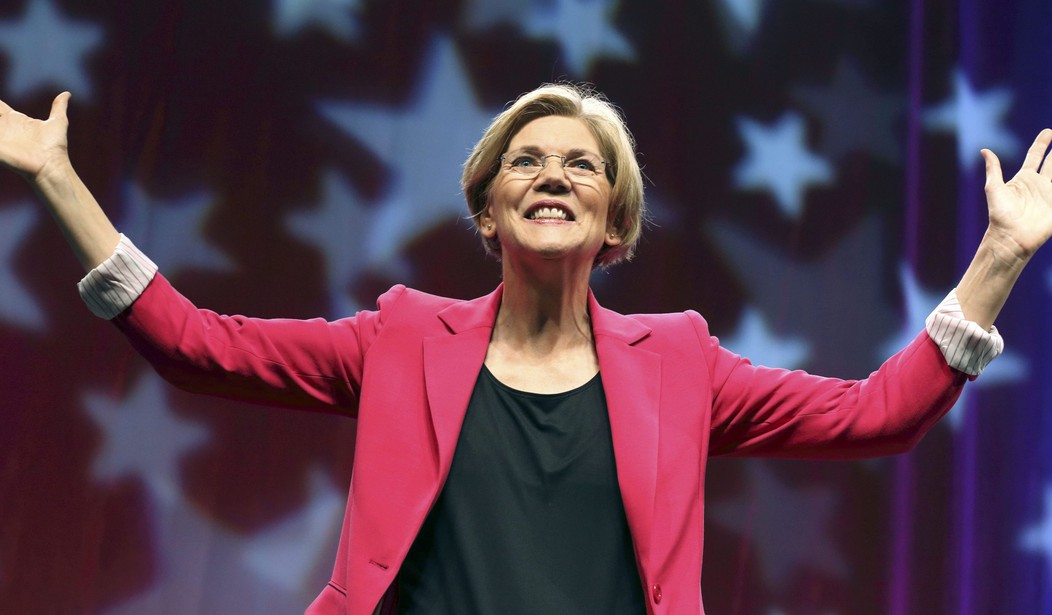Senator Elizabeth Warren’s hometown newspaper, the Boston Globe, highlights her problems on the left with her claims of having native American ancestry.
Rather than dismiss the criticism against her, the Globe surprisingly documents questions surrounding her heritage and makes the obvious point that the more prominently her name is mentioned as a potential candidate for president in 2020, the more attention will be payed to her questionable explanation about her ancestry.
She’s taken flak from the right for years as a “fake Indian,” including taunts from President Trump, who derisively calls her “Pocahontas.’’ That clamor from the right will only grow with her increasing prominence.
And, more telling, there’s also discomfort on the left and among some tribal leaders and activists that Warren has a political blind spot when it comes to the murkiness surrounding her story of her heritage, which blew up as an issue in her victorious 2012 Massachusetts Senate race. In recent months, Daily Show host Trevor Noah mocked her for claiming Native American ancestry and the liberal website ThinkProgress published a scathing criticism of her by a Cherokee activist who said she should apologize.
As Warren is mentioned as a serious presidential contender in 2020, even some who should be her natural allies say Warren has displayed a stubborn unwillingness to address the gap between the story she was told of Native Americans in the family tree and a dearth of hard evidence to back it up.
It’s a disconnect that has lingered unresolved in the public sphere for more than five years.
Warren dismisses the questions by saying that she knows she comes from Native American stock because her family told her so. That explanation might have worked when running for the Senate. But you can bet the scrutiny of her heritage will rise tenfold if she enters the presidential race.
The Globe investigated Warren’s Native American claims when she ran for the Senate and found that some in her family back in Oklahoma identified as Native American while others had never heard of their connection. The Cherokees, the tribe to which she claims ancestry, said she has never reached out to embrace them and actually stopped identifying as Native American previous to her Senate run.
Despite this, the real question that should surround Warren’s claims is whether she gained advantage in hiring by lying about her Native American ancestry. She denies ever having done so, but that is surely a lie:
Over the course of her life, Warren did at times embrace this family story of Native American roots. In 1984, she contributed five recipes to a Native American cookbook entitled “Pow Wow Chow: A Collection of Recipes From Families of the Five Civilized Tribes: Cherokee, Chickasaw, Choctaw, Creek, and Seminole.” In the book, which was edited by her cousin and unearthed during her 2012 campaign by the Boston Herald, her name is listed as “Elizabeth Warren, Cherokee.”
Warren also listed herself as a minority in a legal directory published by the Association of American Law Schools from 1986 to 1995. She’s never provided a clear answer on why she stopped self-identifying.
She was also listed as a Native American in federal forms filed by the law schools at Harvard University and University of Pennsylvania where she worked.
And in 1996, as Harvard Law School was being criticized for lacking diversity, a spokesman for the law school told the Harvard Crimson that Warren was Native American.
We all have family legends about our ancestry and ancestors. But claiming to be a minority on a federal form without any proof could have gotten her fired if Harvard had discovered the subterfuge.
This is an issue for her that will not go away. Despite the criticism on the left, it will not likely be a deal breaker with primary voters. But the issue may resonate in the general election, since it goes to the heart to her claims of honesty and integrity.










Join the conversation as a VIP Member